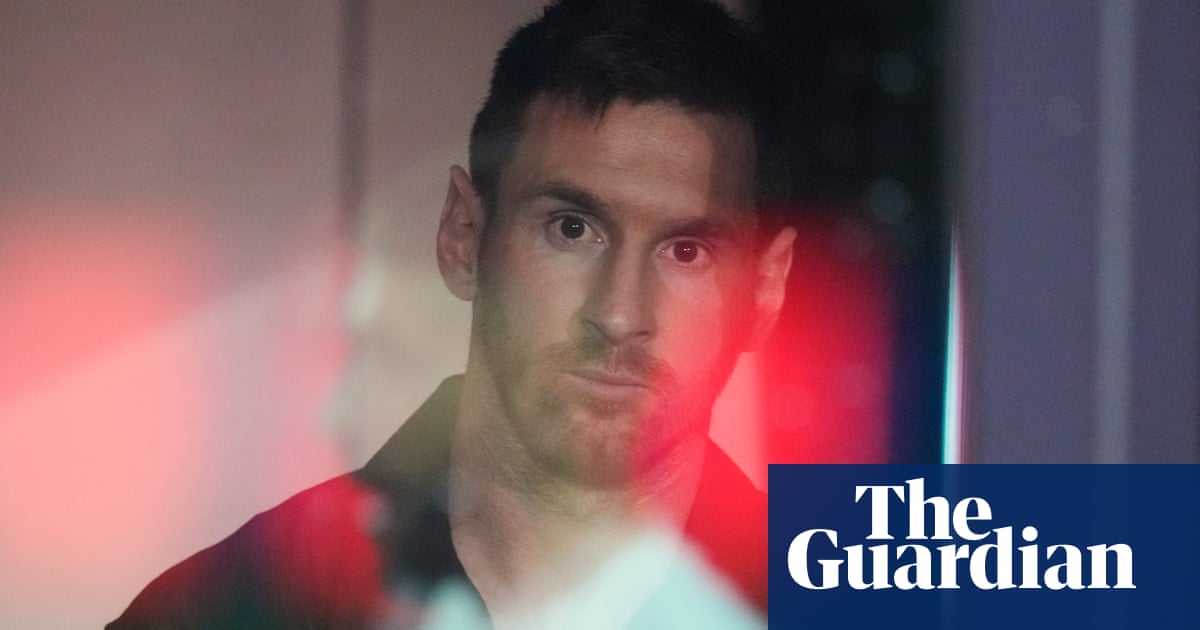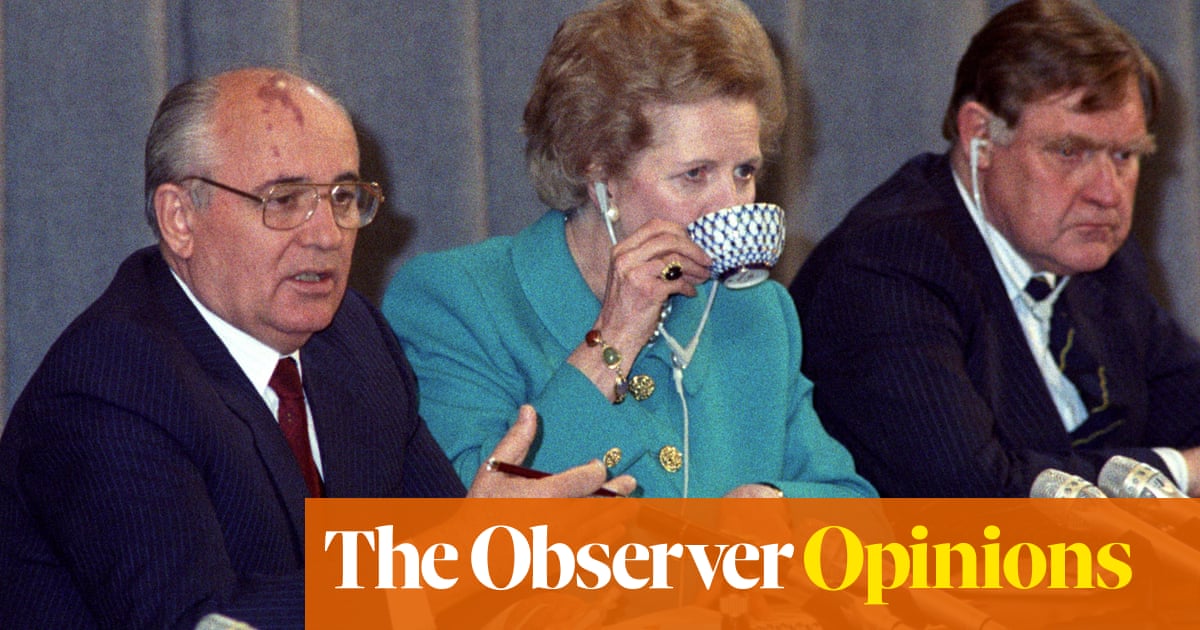
Lionel Messi reached his breaking point. At least for now. The Argentinian has been remarkably durable throughout his club and international career. However, at 36, 12 spellbinding games in two months for his new club – after a season with PSG sandwiched by the World Cup triumph where he played every single minute – has proved too much.
As such, Inter Miami were without their blockbuster acquisition for arguably the biggest game in the club’s history. In the US Open Cup final on Wednesday night a fatigued squad lost 2-1 to Houston Dynamo in Fort Lauderdale. Messi could only watch from the stands.
The absence wasn’t entirely unexpected. Messi hadn’t trained with his teammates on Tuesday and wasn’t on the team bus that arrived at the stadium. The hopes of a cameo began to fade and, 50 minutes before kick-off, the team sheet made it official – “10. L. Messi” wasn’t even among the subs. That put a dampener on the pre-game fireworks.
But an energetic Houston side, the surprise package in the MLS Western Conference this season, were buoyed and overpowered Miami from the first whistle. The Texans raced into a 2-0 first-half lead and looked more likely to extend it before a 92nd-minute Josef Martinez consolation that give Miami hope their performance did not merit.
Inter had been cagey about their star’s fitness all week, with boss Tata Martino publicly pondering the risk, despite the suspected hamstring issue the coach described only as “dealing with his old scar tissue.” This suggested the problem was wear and not a new ailment.
Perhaps the south Florida club didn’t to risk empty seats at the final by officially ruling out the seven-times Ballon d’Or winner. After the defeat, Martino said there had never been a chance Messi would play. He did, however, state the player will return before the season’s end.
“Well, it wasn’t prudent for [Messi] to play. Not even to consider it for a few minutes,” he said in post-match comments, where he attributed his team’s subpar performance to fatigue. “Yes, he will play before the league is over. We will go match-by-match defining how things are coming along with the medical department to see whether he can play without any further risks.”
There is still little clarity about the injury itself but on this evidence, if prolonged any longer, Messi’s absence would entirely diminish Miami’s chances of scraping into the MLS Cup Playoffs. While the former Barcelona player has scored 11 goals since joining the club and is yet to taste defeat, Miami have just one win in the four games he’s missed
Yet it’s surprising just how much Messi has been involved since arriving in Miami in July. The instant success brought Leagues Cup glory (Miami’s first-ever trophy), progress to the US Open Cup final, and the opportunity to clamber into postseason contention.
Perhaps the injury breakdown is that bill coming due.
Minutes clearly could have been managed more efficiently. Messi has completed 90 minutes eight times – and stretched to 120 minutes in the US Open Cup semi-final win against Cincinnati. He played 78 minutes in another start and 38 minutes on his famous debut against Cruz Azul of Liga MX on 21 July.
Eighty-nine more minutes were amassed in a World Cup qualifier for Argentina this month before he was “rested” for the second fixture. He has since missed the 5-2 MLS defeat in Atlanta, limped off against Toronto on 37 minutes, and sat out last weekend’s draw in Orlando. It’s unclear when he’ll return. It’s not just Messi that Miami need to think about either. Their two best players outside Messi are Sergio Busquets and Jordi Alba, who are 35 and 34 respectively. Alba also missed Wednesday’s game with what Martino described as “muscle fatigue”.
Yet external demands have made an Inter Miami game without Messi unfeasible until he could no longer physically play. Fans around the US have paid hundreds of dollars over the odds for tickets. MLS, its other clubs, broadcasters, and sponsors all sought to capitalise on a signing that required unprecedented concessions or investment from all of them.
While it wouldn’t be popular among the many stakeholders, the prudent move may be to shut down Messi for the remainder of the campaign. His lucrative contract runs until December 2025. He’ll be in Miami for two more full seasons and well after his 38th birthday. His health must be safeguarded if he’s to see out that deal.
Securing a playoff berth world would require Inter to be near-perfect and, based on Wednesday night’s showing, that would require Messi to play lots more football in the next three weeks.
Although Miami have games in hand over some of the teams above them, they have five regular season games to close a five-point gap and jump five places in the table from 14th to ninth – the last qualifying spot in the Eastern Conference. That’s currently occupied by Saturday’s visitors New York City. That result may go a long way to determining the plan moving forward.
In a way, Miami have fallen victim to Messi’s instant impact. Fans may not have traded the glorious memories of a whirlwind Leagues Cup success for this domestic triumph. However, the resulting glut of games has ultimately cost the club the temporary wellbeing of its remarkable acquisition and Wednesday night’s final.
Big picture, Miami are in decent fettle. A US Open Cup triumph would have been significant for the fourth-year franchise. However, the prize of Concacaf Champions League qualification for next season was already sealed by the Leagues Cup. Miami will head straight for the last 16, where Messi will be asked to deliver again.
The experienced coach Martino – formerly Messi’s boss with Barcelona and Argentina and a former MLS Cup winner with Atlanta – is a hugely significant upgrade on Phil Neville, who was fired in June with Inter sitting dead last in the conference.
Martino’s possession-based approach is more suited to the Florida heat and summer MLS play. Busquets remains a midfield puppet master and Alba has impressed. Underperforming forwards Leo Campana and Robert Taylor have raised their levels. Goalkeeper Drake Callender has been in tremendous form, and homegrown 18-year-old teenager Benjamin Cremaschi earned a recent debut for the US national team. The forthcoming offseason will provide the club’s sporting director, Chris Henderson, with a chance to build further, now as the most attractive destination in MLS.
In the run-up to the final, talented Dynamo coach Ben Olsen said his club felt “invisible” amid Messi Mania. Indeed, Houston have crept up the league almost unnoticed this season, smartly anchoring the team around the superb veteran Mexico midfielder Hector Herrera. They are playoff-bound, just two points off the Western Conference summit.
On Wednesday night, as his team paraded the US Open Cup around Messi’s home ground, Olsen’s team were extremely visible when the star attraction was absent. “They were missing a player or two, but I don’t really care,” Olsen remarked afterwards. Nor should he.
As indispensable and in-demand as Messi is, Miami must now handle him with care.












